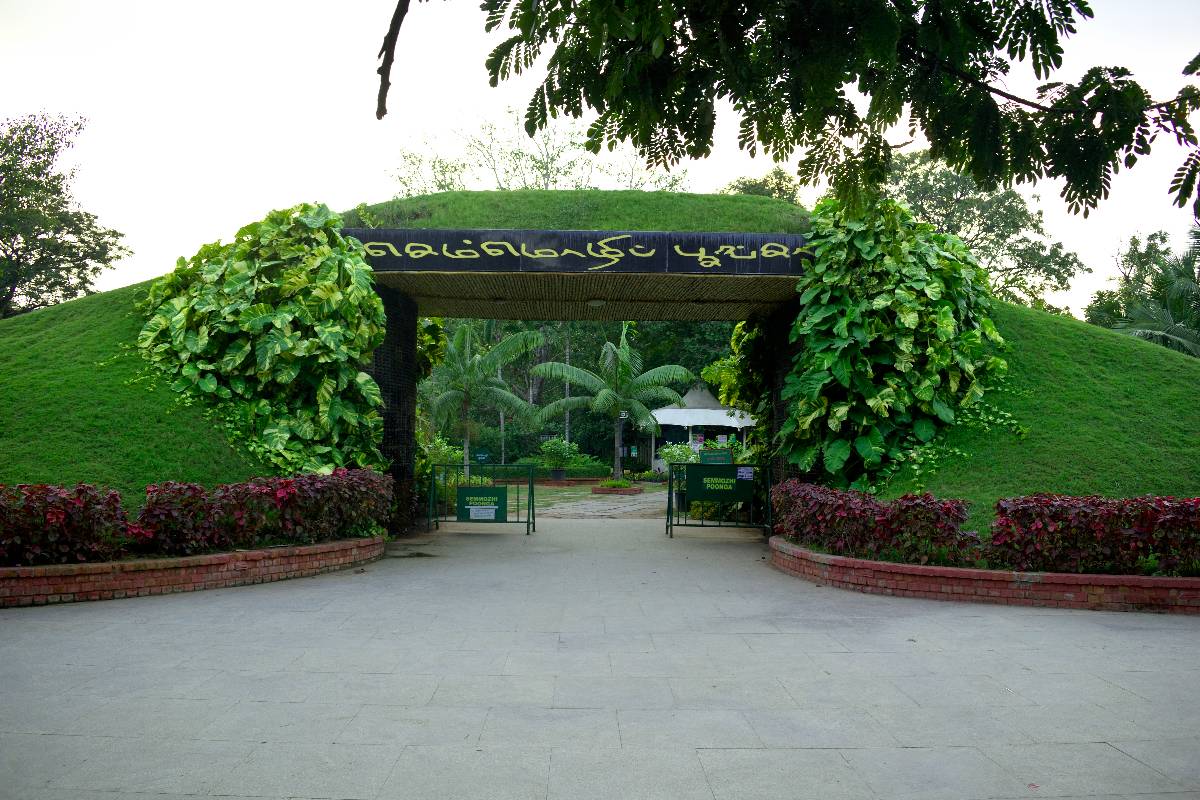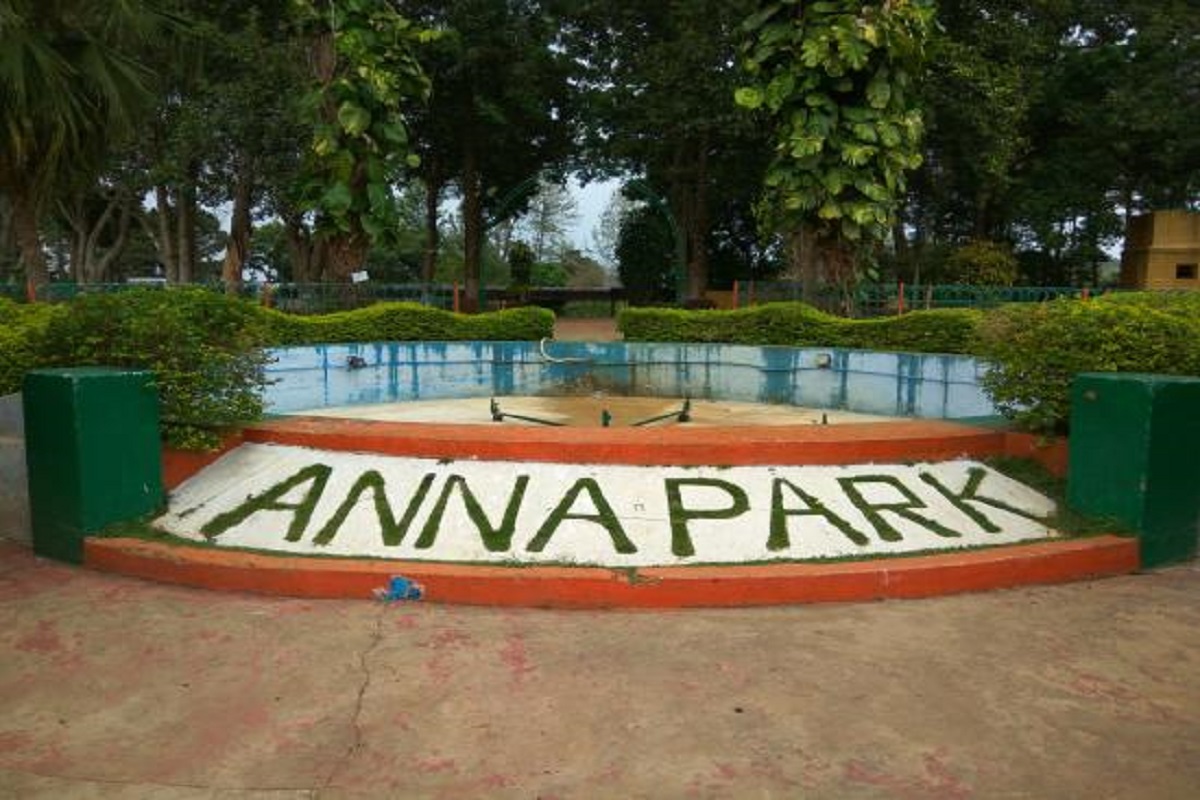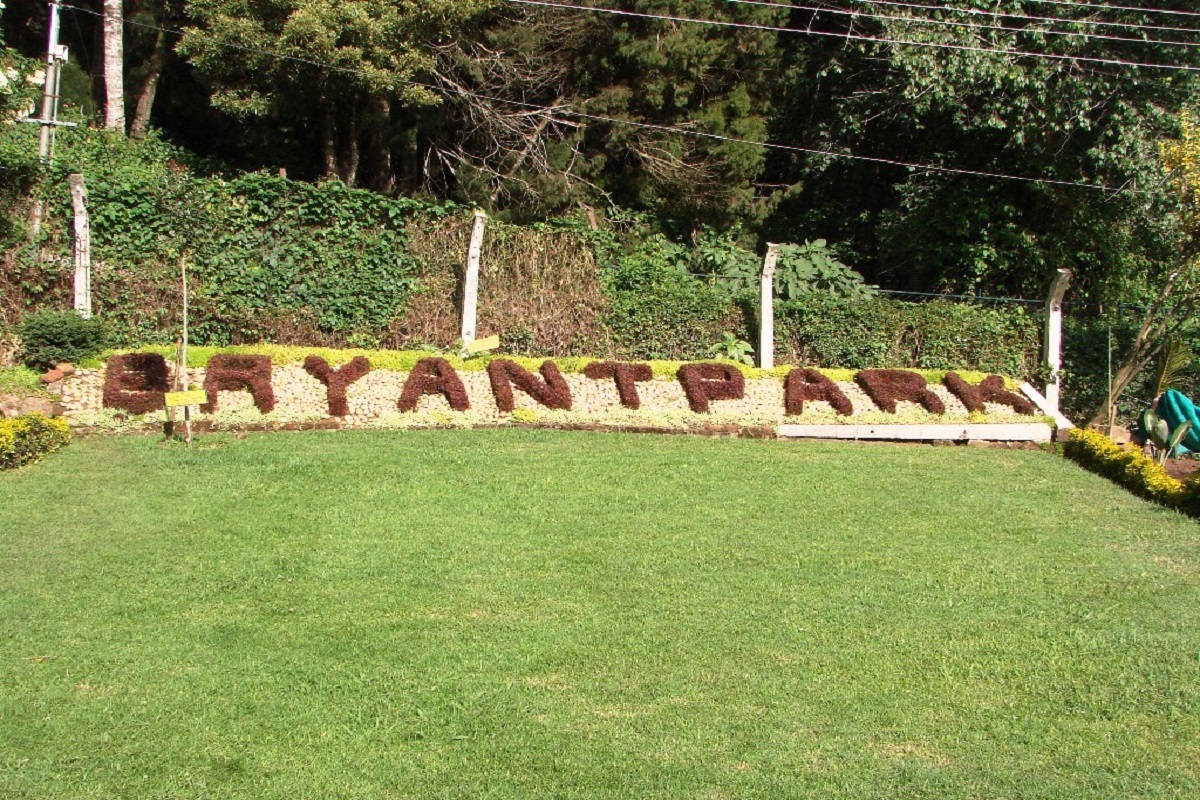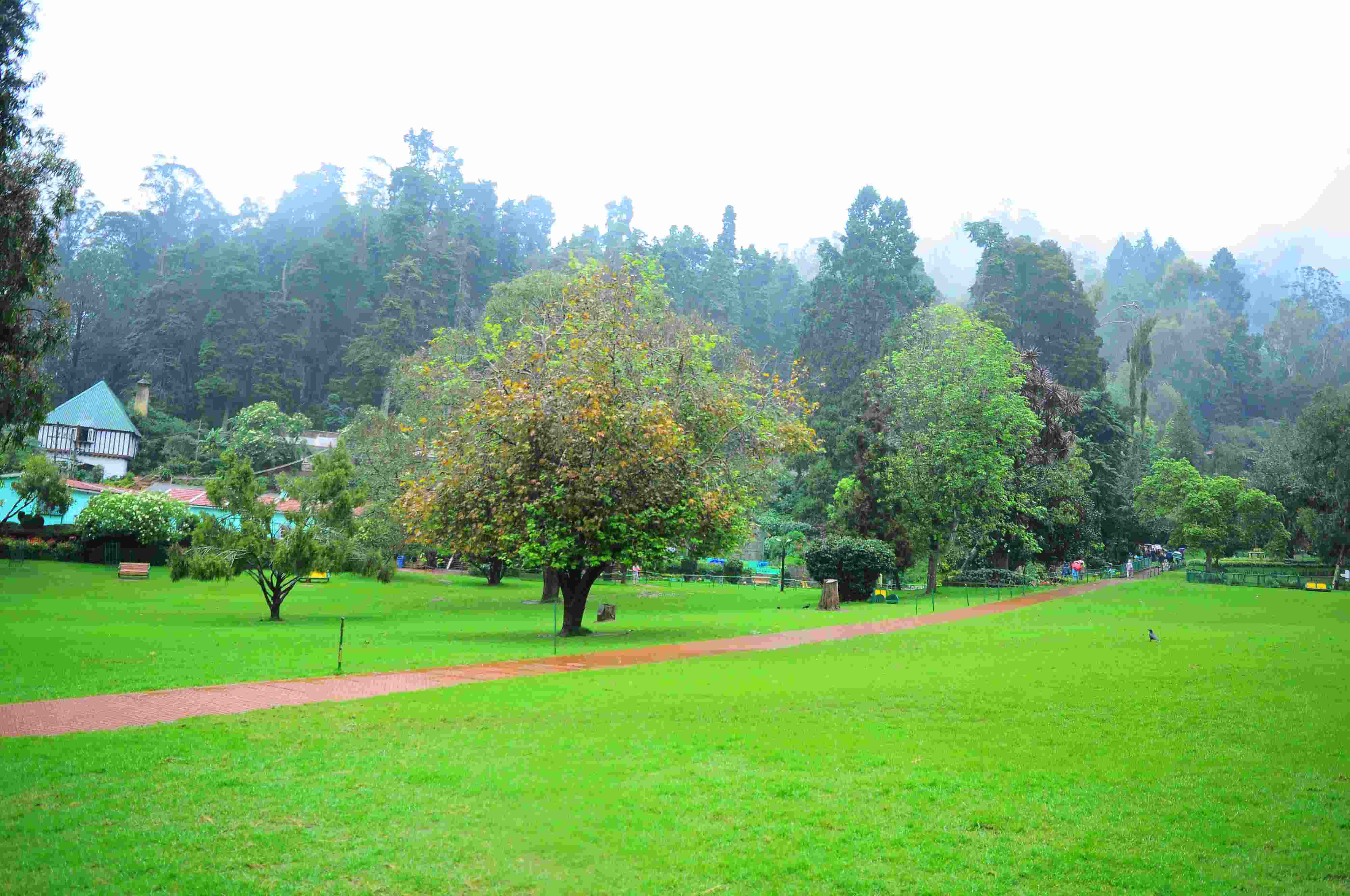change colors
Custom colors
change Font
Innovations
Creation of Horticulture Villages in Tamil Nadu
Tamil Nadu is having 7 Agro climatic Zones. The prevailing climate is suitable for growing almost all Horticultural Crops. A separate department had been formulated for Horticulture owing to its diversified activities and scope for expansion in 1979 by bifurcating it from the Department of Agriculture. Since then various schemes are being implemented by this Department with the following objectives;
To increase the area, production and productivity of Horticulture crops
To increase the standard of living of farmer
On the whole 55% area, 152% production and 52% productivity increase is achieved in 20 years. The credit of this achievement can be attributed to the implementation of the following schemes and technologies introduced through this Department.
| S.No | Scheme | Strategies |
|---|---|---|
| 1 | Integrated Horticulture Development Scheme | Area expansion Use of high yielding/hybrid seeds and pedigree planting materials |
| 2 | National Horticulture Mission | Area expansion Rejuvenation of old orchards High density planting Canopy Management Thrust on IPM&INM Protected cultivation |
| 3 | National Agricultural Development Programme | Precision Farming Hi-tech Horticulture |
| 4 | National Mission on Micro Irrigation | Judicious use of water Fertigation |
| 5 | State Horticulture Farms | Production of quality pedigree planting materials |
Though the achievement has been made, is visible in area, production and productivity on the whole, micro level (at village level) the impact is not visible since the schemes are implemented in scattered manner throughout the state. Hence, it is essential to pool all Government schemes in one particular village to know the impact. As a pilot project it is now proposed to implement the available Government schemes in select villages of 15 districts. The proposed project period is 3 years.
Project Objectives
To promote holistic growth of horticulture crops at village level.
To enhance the status of living and economic standards of farmers by growing Horticulture crops.
To increase the productivity levels of horticulture crops through implementing location specific and yield influencing effective technologies.
To increase the area and production of horticulture crops in Tamil Nadu.
To quantify and exhibit the impact of various horticulture schemes implemented by the department within a shorter span of time.
Project Implementation
For the implementation of this project 15 districts have been identified and 5 villages will be selected in each district and Horticulture Facilitation Centers will be established for developing the selected villages into Horticulture Villages. So, totally 75 villages will be selected for the project.
Districts - Tiruvallur, Vellore, Salem, Dharmapuri, Krishnagiri, Erode, Coimbatore, The Nilgiris, Trichy, Perambalur, Madurai, Theni, Dindigul, Ramnad and Tirunelveli.
MODEL MICRO IRRIGATION VILLAGE
The Government of Tamil Nadu has encouraged the farmers by way of giving 100% subsidy to small and Marginal farmers and 75% subsidy to other farmers for installation of Micro Irrigation system. To give a wide spread adoption of this technology one Micro Irrigation model village will be selected in each district and entire village will be covered under Micro Irrigation. The Micro Irrigation system will be installed at subsidized cost. More over the field inspection will be done in an easy and quick method by using information technology for monitoring the implementation of the scheme.
One model village will be selected in each district wherein the entire Horticulture and Agriculture crops suitable for Micro Irrigation, irrigated by open wells and tube wells, will be brought under Micro Irrigation either by Drip irrigation or Sprinkler irrigation. The selection of the Micro Irrigation system will be based on the requirement of farmer and suitability of the crops cultivated.
Small and Marginal farmers will be given with 100% subsidy and other farmers will be given with 75% subsidy for installation of Micro Irrigation system. The scheme will be implemented by using the funds from on going National Mission on Micro Irrigation scheme.
The progress of the work will be by inspected and monitored by using Information technology, a new method of M- Governance ( Mobile Governance). By this way the status of installation of the Micro Irrigation systems in the Geo fenced fields of the beneficiaries can be monitored easily by the Deputy Director of Horticulture, District Collector,Commissioner of Horticulture and Plantation Crops, etc. And also other activities like constructions and maintenance works in the Parks and Gardens under TANHODA can be monitored using GIS instantaneously. All these automation would be taken up by using mobile devices.

Semmozhi Poonga

Anna Park

Botanical Garden

Rose Garden

Sim's Park

Kattery Park

Bryant Park
Encouraging Cultivation of Pandal Vegetables
General Scenario
The agro ecology of Tamil Nadu is favourable for growing large variety of vegetable crops. An area of 2.62 lakhs ha is under vegetable cultivation. It occupies a prominent share of 26 % of total horticulture crops. Vegetables are used for domestic consumption and processing into various products. Vegetables are excellent source of vitamins and minerals such as calcium, iron besides proteins and carbohydrates. Vegetables combat under nourishment and are known to be a cheapest source of natural protective tools.
Pandal vegetables, being short duration crops, fit very well in the intensive cropping system. It offers viable option for the growers to get increased income per unit area. It includes no. of vegetables viz. bitter gourd, snake gourd, ribbed gourd, panda avarai etc. These vegetables are grown on commercial scale and are capable of giving high yields and high economic returns to the growers. It has tremendous market potential. The cultivation of vegetables is constrained due to high initial investment cost. With the objective of enhancing area under pandal vegetables and encouraging farmers to obtain increased income, it is proposed to implement the project on “Encouraging Cultivation of Pandal Vegetables
Project Rationale
The initial investment cost to be offered by farmer towards establishing pandal and hybrid seed materials are high due to which often farmers are unable to go in for pandal cultivation of vegetables.
Pandal vegetables has good demand all through the year and it has consistent local as well as export market potential
Farmers need to be encouraged for establishing pandal structure and cultivating crops (Pandal vegetables)
Since farmers practice traditional method of cultivation and constantly using local varieties they get low yield. High yielding / hybrid seed materials have to be popularized among the farmers to get enhanced yield per unit area.
Improved method of cultivation has to be disseminated to farmers
Project Implementation
This project will be implemented in 28 districts with a financial out lay of Rs.778.00 lakhs. High yielding/Hybrid seeds will be distributed to farmers at 50% subsidy. Assistances will be provided for establishing pandal structure as back ended subsidy.
Eligibility
Each farmer is eligible for a maximum assistance of 1 ha. All category farmers are eligible to get assistance under this project
ORGANIC FARMING
In the context of changing world scenario towards organically produced Food, organic farming is gaining importance world wide. India, as a result of "Green Revolution" has attained self sufficiency in food grain production and is able to feed the 1.2 billion mouths. But this has definitely led to overexploitation of our natural resources and indiscriminate use of chemicals for cultivation. With food safety concerns looming large, we have to definitely take a stand on sustainable agriculture by adopting organic farming methods especially in food crops.
Realizing this, the following announcement was made by the Hon’ble Minister for agriculture on the floor of the assembly during the Agriculture Demand on 19.04.2012 regarding Organic Farming policy of the State.
This announcement has already instilled a sense of responsibility among the stake holders and public and it is imperative to draft the policy immediately.
RATIONALE
Though our state tends to be a pioneer in most of the technologies and policies, we are found to be lagging behind states like Sikkim, Himachal Pradesh, Nagaland, Karnataka, Kerala, Andhra Pradesh and Uttaranchal as far as Organic Farming is concerned.
Organic Farming strategies can be devised only based on a strong State policy. The method of implementation and agencies involved can also be defined based on a policy. Hence these attributes form a part of the State Organic Farming Policy.
OBJECTIVES
To analyze the world Organic Farming Scenario and to determine our role in the global arena of Organic Farming.
To bring together eminent brains in the field of Organic Farming in the Country and State and to pool their views and knowledge on Organic Farming.
To Draft an Organic Farming Policy for the State which is wholesome and would be a ready Reckoner for all future Schemes and proposals of the State on Organic farming
As per G.O Ms.(2D) no.123, Agri (AP3 Dept), dt.11.09.12 the following 18 members were proposed to form the committee to draft the Organic Farming Policy.
1. Dr. Santhosh Babu, I.A.S, Commissioner of Horticulture & Plantation Crops, Chepauk, Chennai-5.
2. Mr. Shiv Das Meena, I.A.S, Commissioner of Agriculture, Chepauk, Chennai
3. Mr. M. Thangaraju, Joint Director of Horticulture, Department of Seed Certification & Organic Certification
4. Dr. Tej Pratap Vice Chancellor, J & K Agricultural University, & President of ICCOA
5. Dr. Yadhav Director, NCOF
6. Mr. Durairaj Director, APOF (Certification Agency)
7. Dr. N Selvaraj Prof & Head, HRS, Rose Park, Ooty.
8. Mr. Manoj Menon Executive Director, ICCOA, Bangaluru
9. Mr. Rajaseelam Reddy, MD, Sresta Natural Bio-products Ltd, Hyderabad
10. Mr. S. Sunil Kumar, Principal Consultant, Aum Consulting Inc. Chennai
11. Mr. D. Ramakrishnan Malayandipattinam, Pollachi.
12. Dr. Aru. Solayappan, Foundation For Organic Agriculture, Chengalpet
13. Mr. Anantha Sayanan, Founder, "Restore" organic outlets
14. Mr. Parasuraman, M.S. Swaminathan Research Foundations
15. Mr. O.V.R.Somasundaram Farmer, Pollachi
16. Mr. S. Ranganathan Farmer, Mannargudi, Thanjavur.
17. Mr. Arul Michel Henry Farmer, Azhagappapuram, Kanniyakumari.
18. Mr. Gladson Robin Farmer, Udayarvilai, Colachal.

.png)

